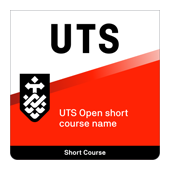This course comprises four modules and is delivered over four weeks. These modules are self-paced and designed to be completed in order, as each module will build off of what you learnt in the previous module.
Module 1 - Analysing crises
- Crisis communication: the why of it all
- Causes, types and life cycles of crises.
Module 2 - Planning and preparing for crisis communication
- Crisis communication planning: the why of it all
- Crisis communication plan: how does it look?
Module 3 - Communicating in crises
- Crisis response strategies: the how of it all
- Media channels in crisis communication: what works?
- Official crisis spokesperson: who should it be?
- Time pressured communication: how does it unfold?
Module 4 - Monitoring crisis communication
- Stakeholder responses to crisis communication: the why of it all
- Tracking stakeholder views in crisis communication: how is it done?
- Online and legacy media in crisis communication: where is the sweet spot?
Over the short course, you will be immersed in UTS’ innovative learning experience with:
- A live, online 1 hour introductory session focussed on the course structure and related expectations, getting to know the facilitator and peers, and starting work on the weekly self-paced module activities
- A live, online 1.5-hour interactive workshop to discuss module outputs and a key crisis communications case study
- Ongoing expert academic support with collaborative online activities throughout the course
- A live online 3-hour crisis simulation exercise at the end of the course to put your new-found crisis communication skills to the test.
In addition to the live sessions, participants will need to undertake approximately 22 hours of self-directed online learning during the 4 week course.


















